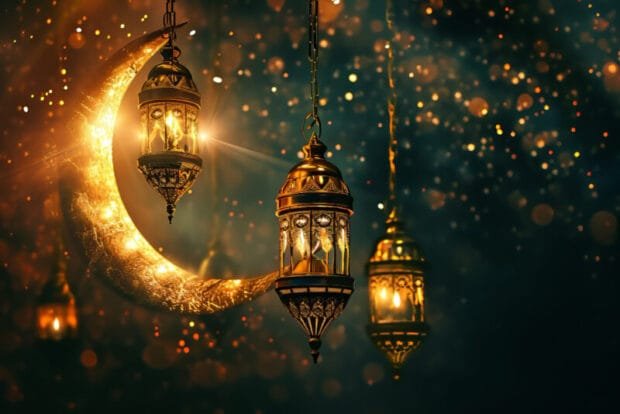Eid al-Adha (also known as Eid al-Kabir) is a time of joy, generosity, and spirituality. It commemorates the obedience of Prophet Ibrahim (peace be upon him), who was willing to sacrifice his son for the sake of Allah. This celebration is a reminder for Muslims to renew their faith, trust in Allah, and solidarity with others.
However, in today’s world, Eid has also become a source of social pressure, especially for newly married couples. Some go into serious debt just to buy an expensive ram, luxurious clothes, or to host extravagant gatherings — all to please others. Yet, Islam teaches us moderation, financial wisdom, and dignity without ostentation.
The Spiritual Meaning of Sacrifice
The Qurbān (sacrifice) of Eid is not a contest of who buys the biggest or most expensive animal. It is an act of worship meant to bring one closer to Allah.
Allah says in the Qur’an:
“It is neither their meat nor their blood that reaches Allah, but it is your piety that reaches Him.”
— Surah Al-Hajj, 22:37
Phonetic: « Lan yanāla l-lāha luḥūmuhā wa-lā dimāuhā wa-lākin yanāluhū t-taqwā minkum »
👉 This shows that sincerity and intention are more valuable than the amount spent.
Eid and the Responsibilities of a Married Couple
In marriage, financial management is a shared responsibility. One of the couple’s priorities is to build economic stability. Unfortunately, many families or young spouses feel the need to « prove » themselves by spending beyond their means during Eid — even if it means taking out loans.
The Prophet Muhammad ﷺ warned:
“Whoever incurs a debt with no intention of repaying it will come on the Day of Judgment as a thief.”
(Sahih al-Bukhari)
📌 Going into unnecessary debt for the sake of appearances or social pressure is blameworthy in Islam.
Moderation: A Prophetic Value
The Prophet ﷺ lived simply, even during festive occasions. He never demanded more than what was available.
Allah says:
“Do not be wasteful. Indeed, the wasteful are brothers of the devils.”
— Surah Al-Isrā, 17:26-27
Phonetic: « Wa lā tubadh-dhir tabdhīran – Inna l-mubadh-dhirīna kānū ikh’wāna sh-shayāṭīn »
✅ It is better to:
- Buy a ram according to your actual means
- Avoid sacrificing if you cannot afford it (it is a highly recommended Sunnah, not obligatory)
- Share a ram with other families
- Celebrate Eid simply but joyfully
💡 4. How to Avoid Debt During Eid?
Here are a few practical tips, especially for married couples:
- Plan in advance: Save small amounts throughout the year
- Stay modest: Wear clean and decent clothes without extravagance
- Ignore social pressure: Allah’s opinion matters more than people’s
- Focus on worship: Eid is about faith, not consumerism
🤝 5. True Joy in Marriage During Eid
The happiness of a couple is not found in impressing others, but in divine blessing (barakah), peace, and shared spirituality. Celebrating Eid together, according to one’s means and with sincerity toward Allah, strengthens the bond between spouses and increases the blessings in the home.
Eid al-Adha is a golden opportunity to get closer to Allah, not to fall into debt or waste. A Muslim couple should approach this day with gratitude, simplicity, and wisdom. Rather than spending to impress others, it’s better to invest in love, faith, and patience.
“And those who, when they spend, are neither extravagant nor stingy, but hold a balance between those (extremes).”
— Surah Al-Furqān, 25:67
Phonetic: « Wa l-ladhīna idhā anfaqū lam yus’rifū wa lam yaqturū wa kāna bayna dhālika qawāmā »

Laisser un commentaire